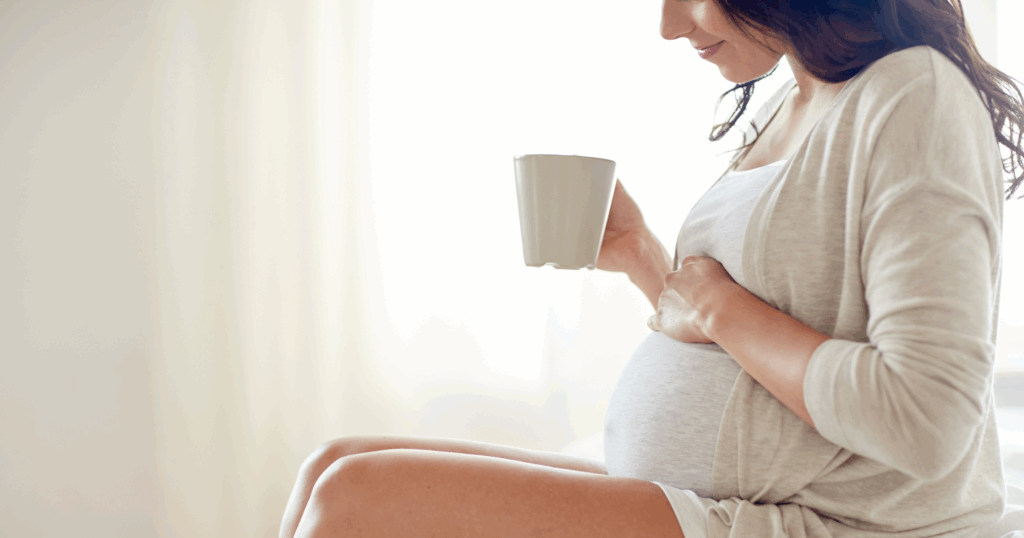Acupuncture for Morning Sickness in Early Pregnancy: A Natural Path to Relief and Wellness
Morning sickness is an experience that touches the lives of most pregnant women, often bringing waves of nausea, vomiting, and exhaustion that can overshadow the joy of early pregnancy. Affecting up to 85% of expectant mothers, this condition varies widely in intensity—from mild queasiness to the debilitating hyperemesis gravidarum that requires medical intervention.
Despite its prevalence, morning sickness remains a challenging symptom to manage, with many women seeking safe, natural alternatives to conventional medications. Acupuncture, a cornerstone of Traditional Chinese Medicine (TCM) practiced for thousands of years, offers a promising approach to alleviating morning sickness. Rooted in the balance of energy flow and organ harmony, acupuncture addresses the underlying imbalances that contribute to nausea and digestive upset during pregnancy.
Acupuncture for Morning Sickness in Early Pregnancy: A Natural Path to Relief and Wellness
Morning sickness is an experience that touches the lives of most pregnant women, often bringing waves of nausea, vomiting, and exhaustion that can overshadow the joy of early pregnancy. Affecting up to 85% of expectant mothers, this condition varies widely in intensity—from mild queasiness to the debilitating hyperemesis gravidarum that requires medical intervention.
Despite its prevalence, morning sickness remains a challenging symptom to manage, with many women seeking safe, natural alternatives to conventional medications. Acupuncture, a cornerstone of Traditional Chinese Medicine (TCM) practiced for thousands of years, offers a promising approach to alleviating morning sickness. Rooted in the balance of energy flow and organ harmony, acupuncture addresses the underlying imbalances that contribute to nausea and digestive upset during pregnancy.
Key Takeaways:
- Acupuncture relieves nausea and vomiting in early pregnancy by regulating hormones, calming the nervous system, and supporting digestive function.
- Targeted acupuncture points like P6 and ST36 help reduce queasiness, improve gastric motility, and ease morning sickness symptoms safely.
- Research supports acupuncture as an effective and low-risk treatment, even for severe cases like hyperemesis gravidarum.
- Combining acupuncture with rest, hydration, and diet adjustments creates a holistic approach to managing morning sickness naturally.
Understanding Morning Sickness in Early Pregnancy
Typical Symptoms
Morning sickness is characterized primarily by nausea and vomiting, but its manifestations can be broader and more complex. Many women experience persistent queasiness, dry retching without vomiting, and overwhelming fatigue that can make daily activities feel impossible. These symptoms often peak between the 6th and 12th weeks of pregnancy but can persist longer for some.
Causes and Theories
While the exact cause of morning sickness remains elusive, several factors contribute to its onset:
- Hormonal Changes: Rapid increases in human chorionic gonadotropin (hCG) and estrogen levels are strongly linked to nausea.
- Digestive Sensitivity: Pregnancy slows gastric emptying and alters gut motility, making the digestive system more reactive.
- Energetic Imbalances in TCM: According to Traditional Chinese Medicine, morning sickness arises from disharmony among the Liver, Stomach, and Spleen systems. These imbalances disrupt the smooth flow of qi (vital energy), leading to symptoms of nausea and vomiting.
When to Seek Medical Advice
While many cases of morning sickness are manageable, severe and persistent vomiting that leads to dehydration, weight loss, or electrolyte imbalances—known as hyperemesis gravidarum—requires prompt medical attention. If symptoms interfere with your ability to keep fluids or food down, it is critical to consult your healthcare provider.
Traditional Chinese Medicine (TCM) Perspective on Morning Sickness
In TCM, the body’s health depends on the harmonious flow of qi and the balance between yin and yang. Morning sickness is viewed as a manifestation of energetic disturbances primarily involving the Liver, Stomach, and Spleen.
- The Liver governs the smooth flow of qi. When Liver qi stagnates, it can cause nausea and irritability.
- The Stomach is responsible for receiving and digesting food. When its function is impaired, symptoms like nausea and vomiting arise.
- The Spleen supports digestion and the transformation of nutrients. Deficiency here leads to fatigue and digestive weakness.
These imbalances may present as heat, stagnation, or deficiency patterns, each requiring tailored acupuncture strategies. By diagnosing the specific energetic pattern, our practitioner can customize treatment to restore balance and relieve symptoms.
How Acupuncture Works for Morning Sickness
Acupuncture’s effectiveness stems from its unique ability to restore balance within the body’s energy systems while supporting vital organ functions. According to Traditional Chinese Medicine (TCM), acupuncture targets specific points to release blocked qi (energy), clear excess heat, and strengthen the Spleen and Stomach—organs central to digestion and fluid metabolism.
From a modern scientific viewpoint, acupuncture influences the body through several physiological mechanisms:
- Regulating hormone levels that fluctuate during pregnancy, which can trigger nausea
- Modulating the autonomic nervous system, calming the nervous system’s overactivity that contributes to digestive upset
- Enhancing gastrointestinal motility, improving digestion and reducing queasiness
One of the most extensively researched acupuncture points for nausea relief is P6 (Neiguan), located on the inner forearm. Stimulating P6 activates the vagus nerve and central nervous pathways, which helps suppress nausea signals. Other commonly used points include:
- ST36 (Zusanli): Supports overall digestive health and strengthens the Stomach
- SP4 (Gongsun): Harmonizes the Spleen, aiding in nutrient transformation and fluid balance
Together, these points work synergistically to alleviate morning sickness by addressing both the energetic imbalances described in TCM and the physiological processes recognized in Western medicine.
Scientific Evidence Supporting Acupuncture for Morning Sickness
A growing body of research supports acupuncture’s role in alleviating pregnancy-related nausea and vomiting. Systematic reviews encompassing over 20,000 publications reveal that acupuncture and related techniques—such as acupressure and electroacupuncture—can significantly reduce symptoms compared to placebo or no treatment.
Studies have demonstrated:
- Decreased frequency and severity of nausea and vomiting
- Improvement in quality of life and emotional well-being
- Effectiveness even in severe cases like hyperemesis gravidarum
While some controversy remains due to variability in study quality, the overall safety profile is excellent, with minimal adverse effects reported. Treatment protocols often involve weekly sessions over several weeks, with some women experiencing relief after just one or two treatments.
What to Expect During Acupuncture Treatment for Morning Sickness
When you come to ACA Acupuncture & Wellness for morning sickness, the experience is gentle and tailored to your comfort. After a thorough consultation, fine, sterile needles are inserted at specific points, often on the arms, legs, and ears.
You may feel a mild tingling, warmth, or a subtle ache around the needle site—sensations that indicate qi activation. Sessions typically last 30 to 45 minutes, and many women find the process deeply relaxing.
Most patients receive treatment once or twice a week during the peak of their symptoms. Side effects are rare but may include slight bruising or minor soreness at needle sites.
Benefits Beyond Morning Sickness
Acupuncture offers more than relief from nausea. Many pregnant women report additional benefits, including:
Reducing Stress and Anxiety
Pregnancy can stir a whirlwind of emotions—from excitement to worry—and the physical changes often amplify stress levels. Acupuncture gently calms the nervous system by promoting the release of endorphins, our body’s natural “feel-good” chemicals. This soothing effect helps reduce anxiety and fosters emotional balance, allowing you to approach pregnancy with greater peace and resilience.
Alleviating Pregnancy-Related Pain
Back pain, pelvic discomfort, and headaches are common companions during pregnancy, often making daily activities challenging. Acupuncture targets specific points to release muscle tension, improve circulation, and stimulate the body’s natural pain-relief pathways. Many women report significant relief and improved mobility, which can transform how they feel throughout the day.
Enhancing Sleep Quality
Restful sleep is often elusive during pregnancy due to discomfort, hormonal shifts, and stress. Acupuncture encourages relaxation by balancing the body’s energies and calming the mind, helping you achieve deeper, more restorative sleep. Better sleep supports overall health and helps manage other pregnancy symptoms more effectively.
Supporting Digestive Health
Beyond easing nausea, acupuncture helps regulate digestive function by strengthening the Stomach and Spleen systems in TCM terms. This support can improve appetite and nutrient absorption, which are vital for both mother and baby. A well-functioning digestive system also reduces bloating, heartburn, and constipation, common complaints during pregnancy.
Facilitating Labor Preparation
As you near your due date, acupuncture can play a proactive role in preparing your body for labor. By stimulating points that promote cervical ripening and encourage uterine contractions, acupuncture may help shorten labor duration and reduce the need for medical interventions. Many women find that regular treatments in the final weeks enhance their confidence and readiness for childbirth.
Practical Tips for Managing Morning Sickness Alongside Acupuncture
While acupuncture is powerful, combining it with lifestyle adjustments enhances results. Consider these strategies:
- Eat small, frequent meals to avoid an empty stomach
- Identify and avoid personal triggers such as strong odors or spicy foods
- Stay hydrated with water and electrolyte-rich fluids
- Rest when possible, as fatigue worsens nausea
- Use complementary remedies like ginger tea or acupressure wristbands on P6
- Monitor symptoms closely and seek medical help if dehydration or weight loss occurs
Together, these approaches create a supportive environment for healing.
Why Acupuncture Is a Safe and Effective Solution for Morning Sickness in Early Pregnancy
Acupuncture stands as a compassionate, effective, and safe option for managing morning sickness in early pregnancy. By addressing the root energetic imbalances and supporting the body’s natural rhythms, it offers relief that goes beyond symptom suppression.
At ACA Acupuncture & Wellness, we are committed to integrating traditional wisdom with modern care to help you navigate pregnancy with confidence and comfort. We invite you to explore acupuncture as part of your holistic prenatal journey, always in partnership with your healthcare team.
Sources:
Choi, S., Choi, S., & Kim, D. (2025). Acupuncture and Herbal Medicine for nausea and vomiting in Pregnancy: An Overview and Quality Assessment of Systematic reviews. International Journal of Women S Health, Volume 17, 1343–1361. https://doi.org/10.2147/ijwh.s512247
Smith, C., Crowther, C., & Beilby, J. (2002). Acupuncture to treat nausea and vomiting in early pregnancy: a randomized controlled trial. Birth, 29(1), 1–9. https://doi.org/10.1046/j.1523-536x.2002.00149.x
Frequently Asked Questions
Can acupuncture help with nausea in the first trimester?
Yes, acupuncture has been shown to effectively reduce nausea and vomiting during the first trimester of pregnancy. It works by balancing digestive function and calming the nervous system, which helps ease discomfort. Many women find acupuncture a gentle and natural way to manage their symptoms without relying solely on medications.
How to cure nausea during the 1st trimester?
There is no single cure for nausea in early pregnancy, as symptoms vary widely among women. However, combining acupuncture with dietary adjustments, adequate hydration, and plenty of rest can significantly alleviate nausea. This holistic approach supports the body’s natural healing processes while minimizing side effects.
Where is the acupuncture spot for morning sickness?
The primary acupuncture point used to relieve morning sickness is P6, also known as Neiguan. It is located on the inner forearm, about two inches above the wrist crease, between the tendons. Stimulating this point helps regulate nausea by influencing the nervous system and digestive pathways.
When should I start acupuncture in pregnancy?
Many women begin acupuncture treatment as soon as they notice morning sickness symptoms, typically around 6 to 8 weeks of pregnancy. However, acupuncture can be safely started at any point during pregnancy to help manage nausea and other discomforts. Early intervention often leads to quicker symptom relief and a more comfortable pregnancy.
What are the forbidden points of acupuncture during pregnancy?
Certain acupuncture points are traditionally avoided during pregnancy because they may stimulate uterine contractions. Notable forbidden points include LI4 (Hegu) on the hand and SP6 (Sanyinjiao) on the lower leg. A qualified practitioner will carefully select safe points to ensure both mother and baby remain protected.
Why is my nausea so bad in the first trimester?
Nausea tends to be more intense in the first trimester due to rapid hormonal changes, especially the surge of human chorionic gonadotropin (hCG). The digestive system also becomes more sensitive during this time, amplifying feelings of nausea. These physiological shifts are natural but can be challenging, which is why supportive treatments like acupuncture can be beneficial.
Contact ACA Acupuncture & Wellness
Get in Touch
Newsletter Sign Up
LOCATIONS
MANHATTAN
QUEENS
NEW JERSEY
CALIFORNIA

ACA Franchise Opportunities
The over $4 billion US acupuncture market offers a great opportunity with over 10% annual growth rates and a continuing flow of new patients interested in the benefits of acupuncture.









